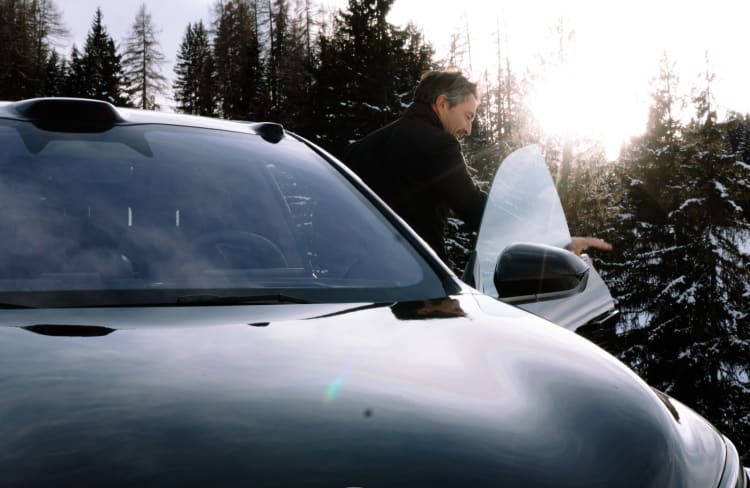What Happens If You Total a Leased Car?
Accidents can happen. And when a leased vehicle is totaled, drivers may find themselves stuck paying for a car that is no longer on the road. Understand what happens if you total a leased car and what your options are if you find yourself in this situation.
Read time
6 minutes
Date
10.12.2023
Share
Leasing a vehicle can be an attractive way to secure a new car. Not only can it be more cost-effective than buying a vehicle outright, but once the term is over, you have the option of moving to a whole new set of wheels.
Unfortunately, accidents can happen. And when a leased vehicle is totaled, drivers may find themselves stuck paying for a car that is no longer on the road. Understanding what happens if you total a leased car and what your options are can help you make an informed decision about whether leasing is right for you.
For those who want to drive a new vehicle without having to think about a long-term lease, a FINN car subscription can be a great alternative to leasing. With subscriptions of six or 12 months, drivers not only enjoy the flexibility of a short-term commitment, but they also benefit from the convenience of having their mileage, maintenance, and comprehensive insurance all bundled into a single monthly payment. With FINN, all you have to decide is where you want to go next.
Lease your next car with FINN
What happens if you total a leased car?
When a driver signs a lease agreement, they are taking responsibility for a car for the full term of the contract. This includes making monthly payments and maintaining the vehicle to the dealership's standards. However, when a car is totaled, not only is it no longer roadworthy, it is deemed too expensive to repair.
Unfortunately for a leaseholder who finds themselves in this situation, they are still bound by the terms of their lease agreement. Not only do they have to maintain their monthly car payments, but they may also have to ensure the dealership is repaid the market value of the vehicle.
When is a vehicle considered totaled?
A car is totaled when it is decided that the cost of fixing the damage outweighs the market value of the vehicle.
As the driver of a leased car that has been involved in an accident, you should speak to a mechanic to ask their opinion on whether your vehicle is totaled, but the call ultimately lies with the insurance company. The insurer will consider all the costs of making your car fully roadworthy and then decide its status.
What to do after the car is totaled
If your vehicle is totaled in an accident, there are several things you should know about handling the situation. Please note this is not legal advice, and you may need to speak with an attorney or other qualified expert in the event of a car accident.
Move your car to a safe location
If you are driving your leased car at the time of an accident, the most important thing you can do in the moments after is to move the vehicle to a safe spot. It could be that you steer your car to the side of the road or onto the shoulder of the highway. If it isn’t possible to move your car, switch on your hazard lights to warn other drivers of the situation.
Check for injuries
Even if you think you are fine in the immediate moments after a car accident, you should check yourself and your passengers for bodily wounds. It is important you also establish if any other driver was involved, and whether they are hurt as well. Should anyone need medical attention, call for immediate help, as personal injuries will need to be attended to as quickly as possible.
Organize your information
When your leased vehicle is involved in an accident with another driver, it is important that you share your details with each other; this includes contact information, insurance particulars, and registration numbers.
Even if it is not immediately obvious who is at fault, it is still necessary to make sure you have each other’s details, as your respective insurance companies will deal with any and all relevant claims.
Report the incident to the authorities
In the U.S., most law enforcement agencies do not require you to submit a police report for a minor fender bender unless someone has been hurt or there is significant vehicle damage. Regardless, it is always advisable to check the reporting regulations for your region. It should also be noted that your insurance provider may need you to file an official report with the local police, so be sure to look over your coverage paperwork to familiarize yourself with what is required.
Speak to your insurance company
After a car accident, you will need to speak to your insurer, even if you believe you were not at fault. Your insurer will probably ask you for the details you have already collected (such as the information for the other driver), as additional information about the weather at the time of the incident, visibility, and other road conditions. All of these particulars can help policy providers to determine the party at fault (if any), and which insurance company should cover associated costs.
Insurance companies typically send claims adjusters to look at damaged cars and assess the insurer’s liability. Based on this evaluation, the relevant policy provider will decide whether your car is totaled.
Speak to your dealership
As a lease customer, your vehicle remains the property of the dealership from which you leased the car for the duration of your agreement. It’s therefore important to be aware of the terms of your contract, which will likely include a clause stating that you need to inform them in the event of an accident.
Let your dealership know you are working with your insurance company and establish if there are any specifics that you need to be aware of. In the instance that your car is totaled, the lease operator may require you to return the vehicle to a set location.
Decide whether to lease another vehicle
After you have returned your leased vehicle, you will likely still need a car. Considering your experience, you may wonder if leasing is still right for you. You could, of course, decide to continue working with your current dealership and lease a new vehicle. Or you may choose to shop around to see what other lease providers have on offer. However, you also have the option to take out a car subscription, which may be a better fit for your needs.
With a FINN car subscription, you can subscribe to a new vehicle for as little as six or 12 months, and with FICO credit scores of 640 or higher accepted, you could be off on your next adventure before you know it.
Who pays after a leased car accident?
If your leased car is totaled in an accident, an insurance company will typically pay the dealership the market value of the vehicle. It is important to note that if the payout is below the value of what you owe on the lease, then you will be held liable for the outstanding balance.
Because of this, many drivers opt for gap insurance, which is a type of policy designed to insulate you from the financial impact if your leased car is lost or stolen. In short, gap insurance is there to cover the shortfall between the market value of the vehicle and your remaining lease payments.
Insuring a leased car
When you lease a vehicle, it is wise to consider gap insurance to provide the necessary coverage should your car be totaled. Rates will probably vary between providers, so be sure to do your due diligence and learn just what is and is not covered. Be mindful that the lowest-cost policy may not provide the best coverage for your needs.
For those who want to bundle in the cost of insurance with their new car, a FINN car subscription can be a great alternative to leasing. And with FINN’s monthly payments also including mileage and maintenance, you only have to think about the road ahead.
How to lease your next car
If you are ready for your next car, here are some things to consider so you can be sure you are making the right choice.
Explore a FINN car subscription
Before researching your next car lease, consider a FINN car subscription instead, particularly if you are looking for a short lease or would like to bundle your vehicle payments, insurance, mileage, and maintenance into a single monthly fee. Plus, with a wide selection of cars available, it couldn’t be easier to pick the right car for you.
Research
As someone considering a new car, you’ll likely have a vehicle in mind, but have you thought about budget? Remembering that you will pay for your car in monthly installments, you will need to be mindful of insurance costs, your likely mileage, and even how long you would like to have the vehicle for. All these elements will be factored into your outgoings.
Compare offers
As a new car buyer, it’s always wise to speak to multiple dealerships to see what is on offer and at what price. You should also inquire about what is and is not included in your lease payments, as well as rates for overages such as excess mileage or damage.
Read the lease terms before you sign
When you sign a lease, it is important you are clear on the details of the agreement. You will want to be certain of what you are responsible for, including what happens if you total the vehicle. And if you have questions about the paperwork, you should ask the dealership for clarification. Remember, once you sign the lease, you are liable for the car for the duration of the arrangement.
Look over the vehicle
Before you drive away from the dealership, be sure to inspect the vehicle for any damage. This includes paying close attention to any nicks, dents, or scratches, both inside and outside the car. And if you see something, be sure to discuss it with the dealership before you leave.
Final thoughts
Leasing is great for drivers who want to get moving without having to commit to purchasing a car outright. However, when a leased vehicle is totaled, the lease-holder still bears the responsibility of dealing with insurance claims, and in some instances, even paying off the market value of the car.
Fortunately, a FINN car subscription provides a fresh alternative to vehicle leasing. FINN drivers know that when they get behind the wheel, their insurance is bundled into one simple monthly fee with their car payments, mileage, and maintenance. And with subscription terms of as little as six months, they can swap to a new vehicle and keep on roaming.


Final thoughts
Leasing is great for drivers who want to get moving without having to commit to purchasing a car outright. However, when a leased vehicle is totaled, the lease-holder still bears the responsibility of dealing with insurance claims, and in some instances, even paying off the market value of the car.
Fortunately, a FINN car subscription provides a fresh alternative to vehicle leasing. FINN drivers know that when they get behind the wheel, their insurance is bundled into one simple monthly fee with their car payments, mileage, and maintenance. And with subscription terms of as little as six months, they can swap to a new vehicle and keep on roaming.
You may also like

What Documents Do You Need to Lease a Car?
Wondering what documents you need to lease a car? Driver’s license, credit score and proof of insurance, income and residence are five essentials.

The Best Time to Lease a Car in 2023
Timing matters if you want to get a great car lease deal. Discover the best time — including the best months, seasons and how to maximize your savings any time of year.

What to Do If You Can’t Afford Your Car Lease Payments Anymore
If you can't afford your car lease payments anymore, don't panic. Several opportunities exist to help minimize damage to your bank account and credit score.








